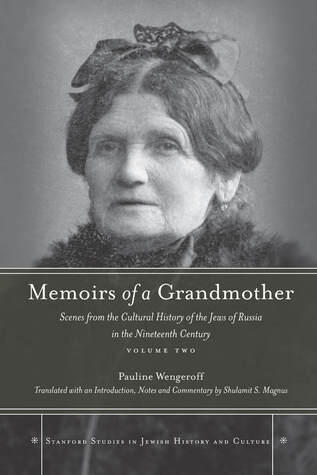
Memoirs of a Grandmother: Scenes from the Cultural History of the Jews of Russia in the Nineteenth Century, Volume Two
아직 평점이 없습니다
Children’s
형식
하드커버
페이지
238
언어
영어
출판됨
Sep 17, 2014
출판사
Stanford University Press
ISBN-10
0804768803
ISBN-13
9780804768801
설명
Pauline Wengeroff's recounting of her experiences provides a vivid and intimate glimpse into the rich tapestry of Jewish life in nineteenth-century Russia. Through her eyes, readers are transported to a world where tradition and change collide, showcasing the challenges faced by Jewish families amid social and political upheaval. Her storytelling goes beyond mere recollection; it captures the essence of cultural identity and resilience.
Wengeroff's vivid descriptions bring to life family gatherings, cultural practices, and the struggles of maintaining heritage in a rapidly evolving society. Each scene is carefully painted, illustrating the warmth of community ties alongside the stark realities of discrimination and poverty. The narrative is not just a personal memoir but also a social commentary, reflecting broader themes of belonging and the preservation of cultural memory.
In this volume, Wengeroff's reflections are enhanced by the scholarly insights of Shulamit Magnus, who contextualizes her experiences within the larger framework of Jewish history. Together, they shed light on the complexities of Jewish existence during this transformative period, making it essential reading for anyone interested in understanding the nuances of Jewish culture and heritage through the lens of personal narrative.
Wengeroff's vivid descriptions bring to life family gatherings, cultural practices, and the struggles of maintaining heritage in a rapidly evolving society. Each scene is carefully painted, illustrating the warmth of community ties alongside the stark realities of discrimination and poverty. The narrative is not just a personal memoir but also a social commentary, reflecting broader themes of belonging and the preservation of cultural memory.
In this volume, Wengeroff's reflections are enhanced by the scholarly insights of Shulamit Magnus, who contextualizes her experiences within the larger framework of Jewish history. Together, they shed light on the complexities of Jewish existence during this transformative period, making it essential reading for anyone interested in understanding the nuances of Jewish culture and heritage through the lens of personal narrative.